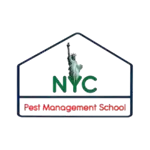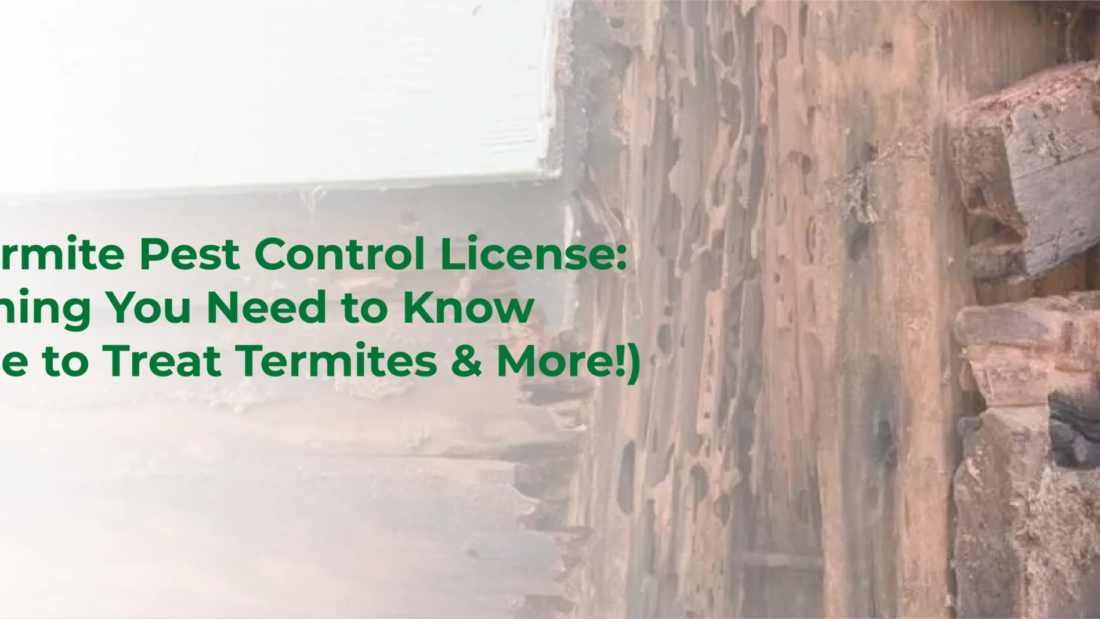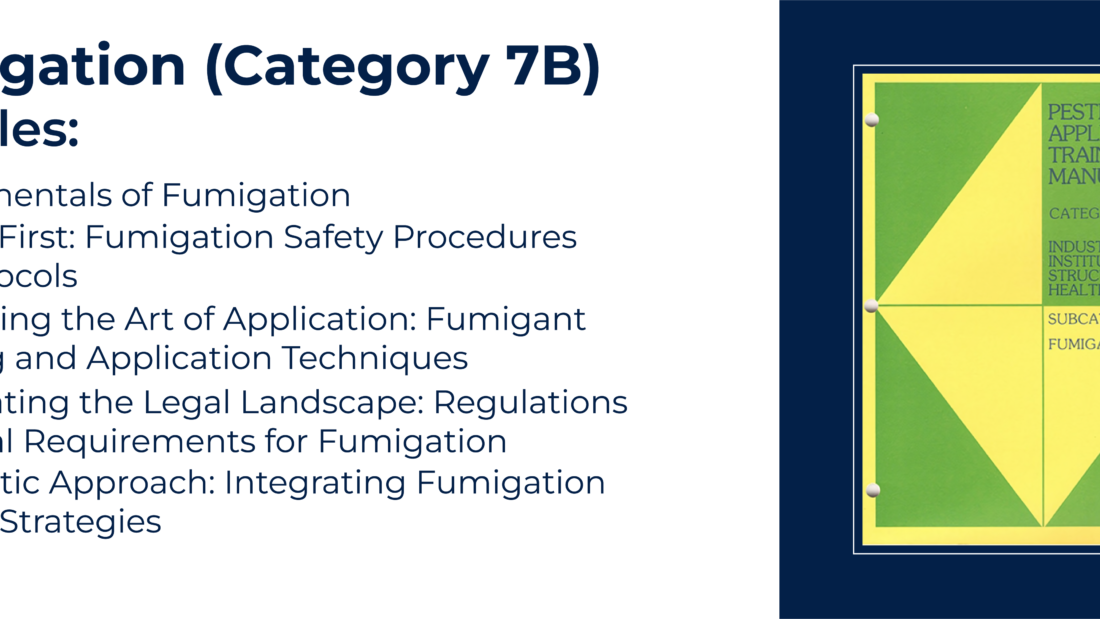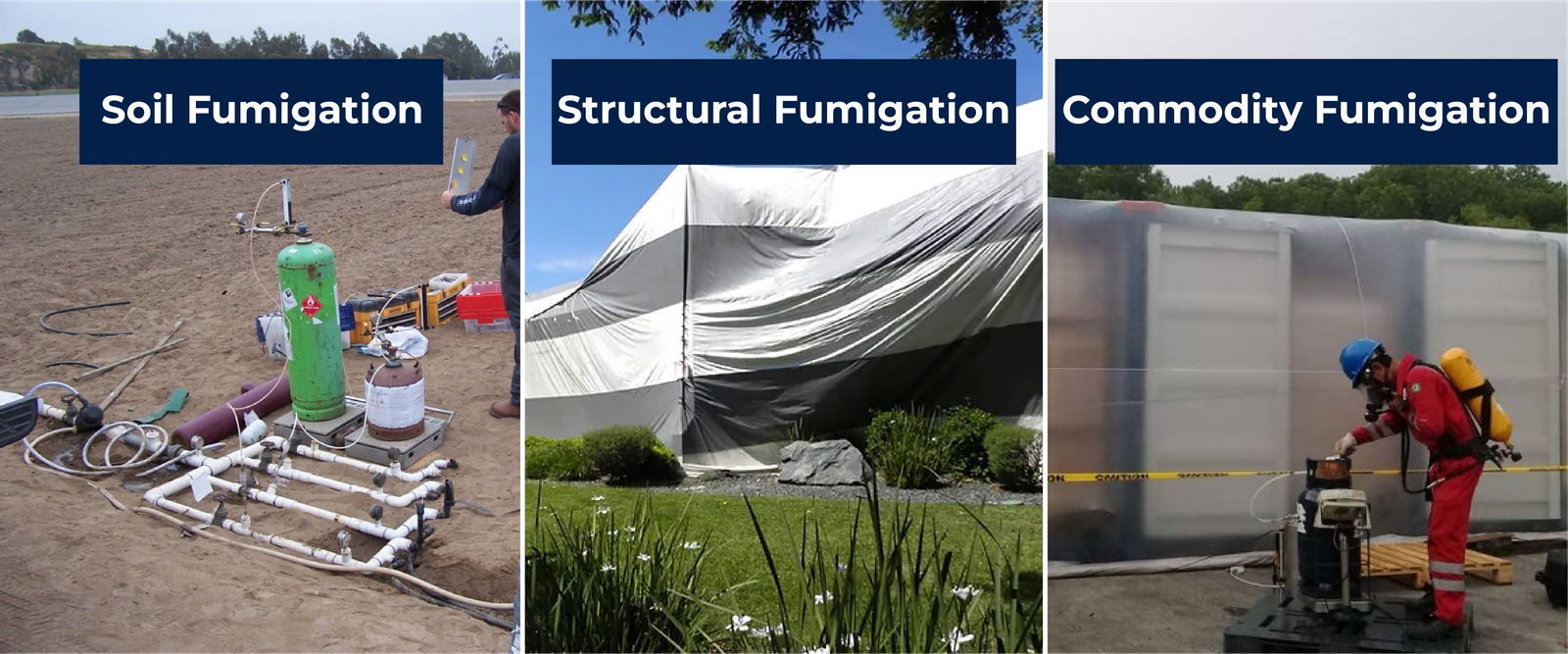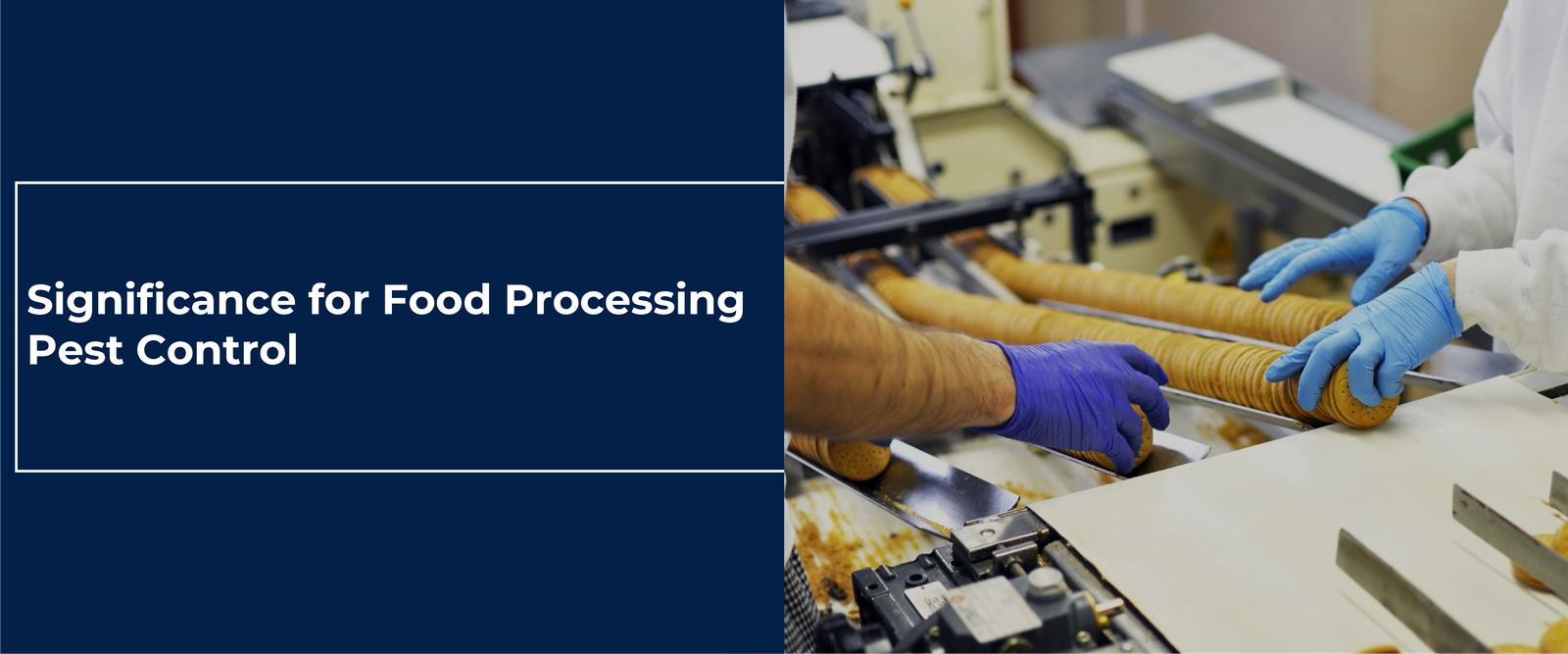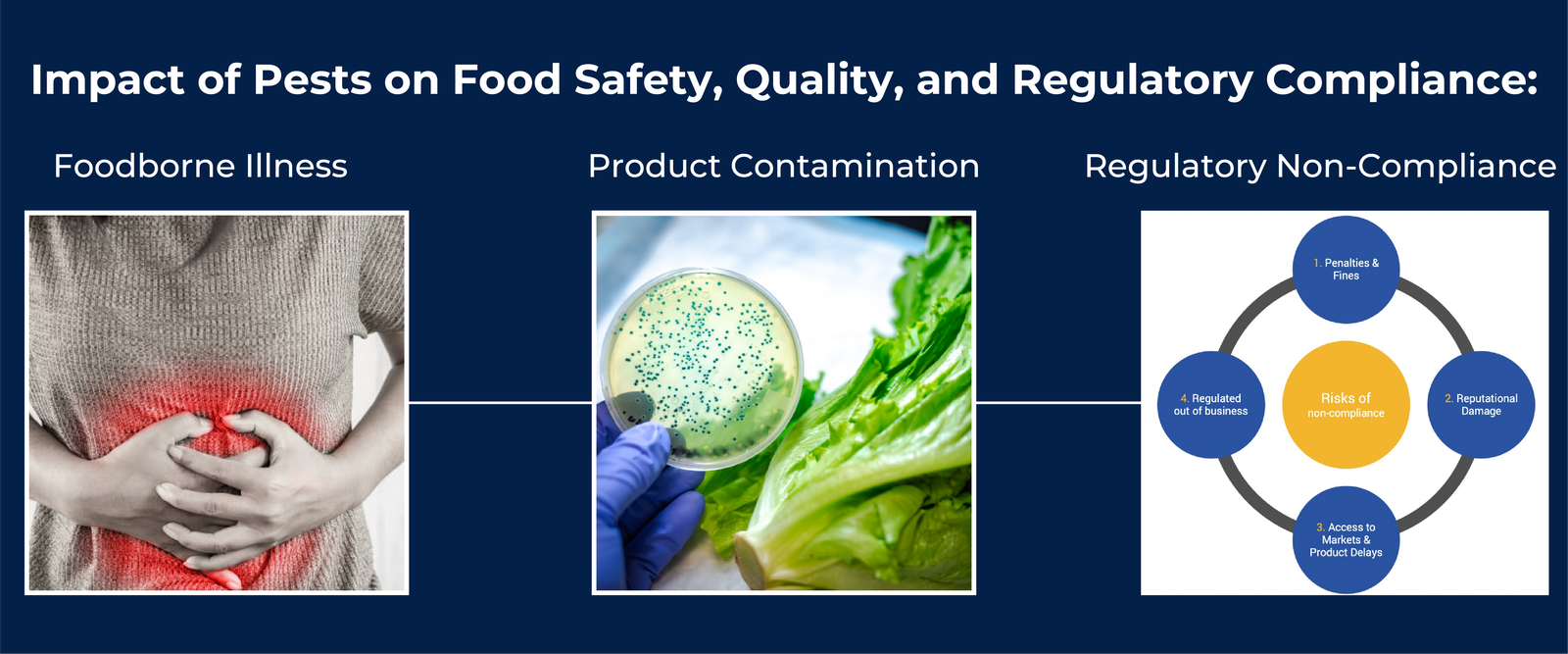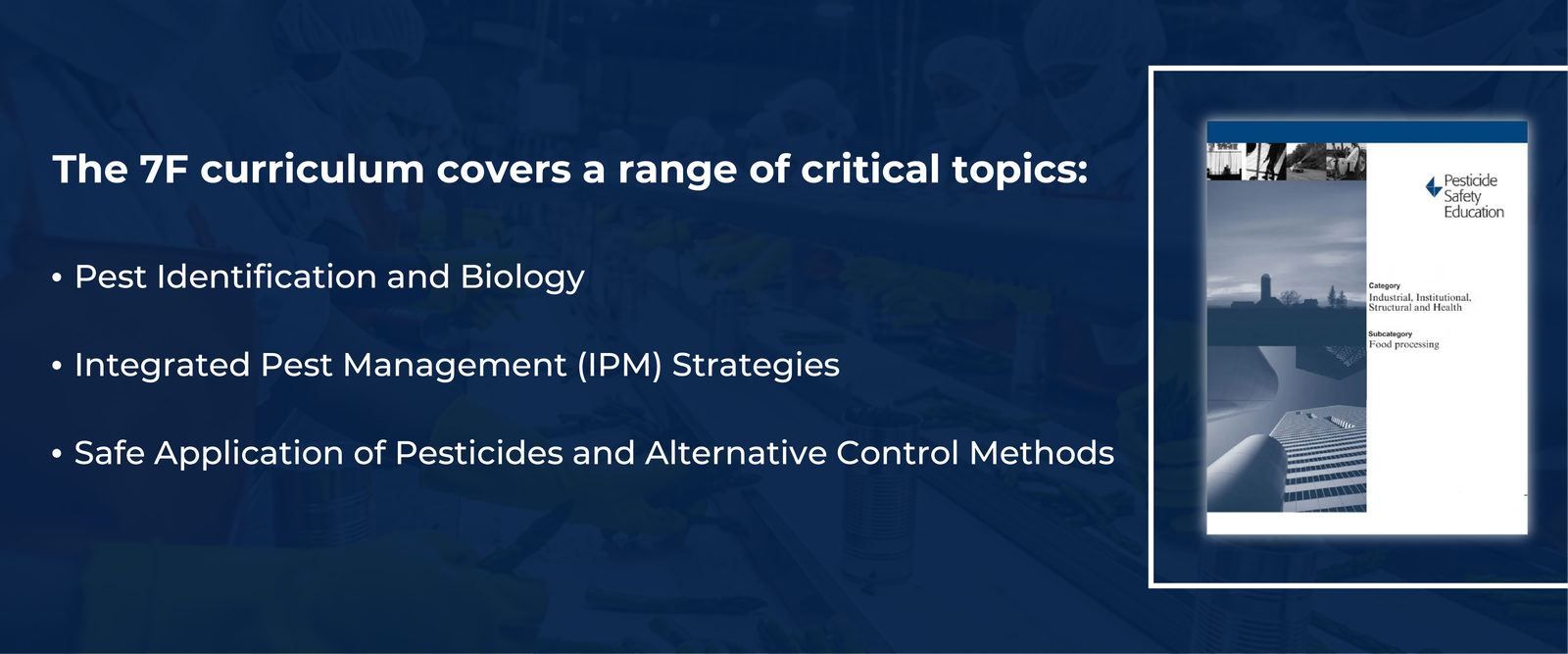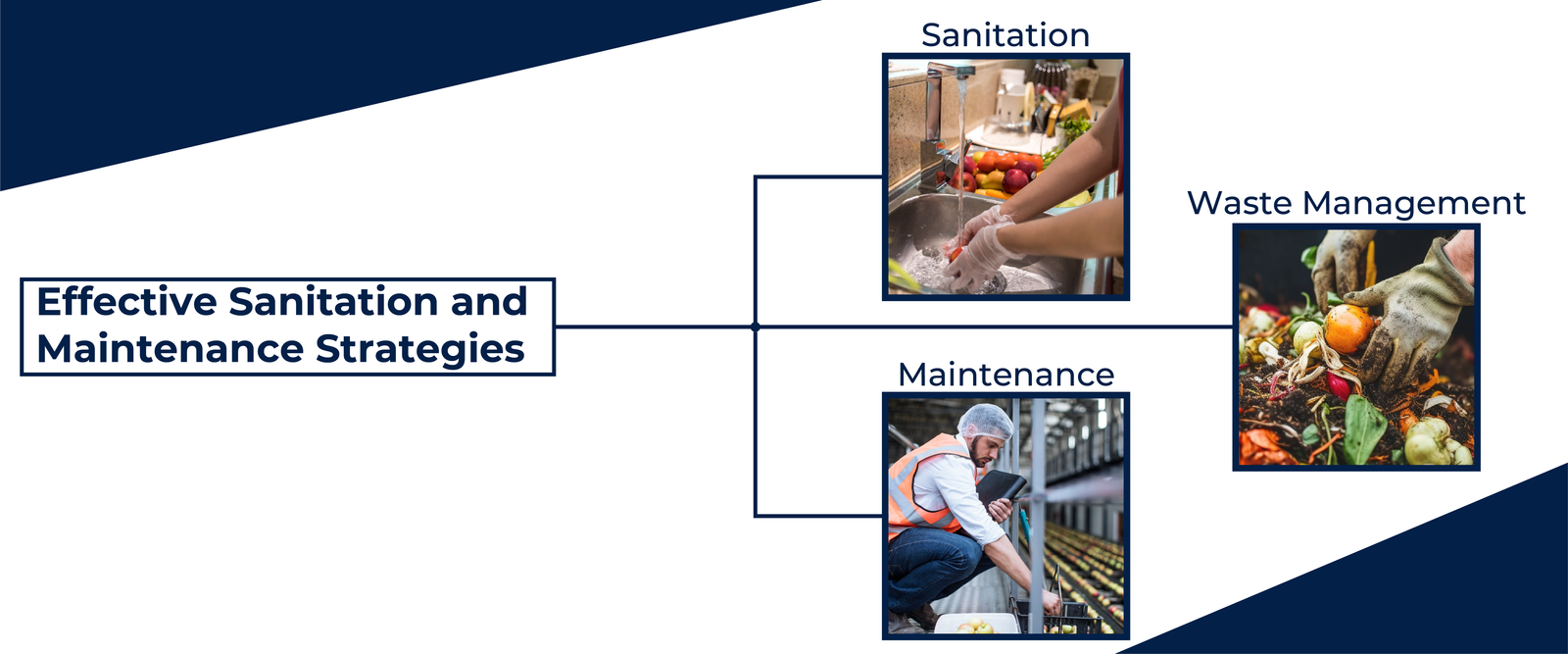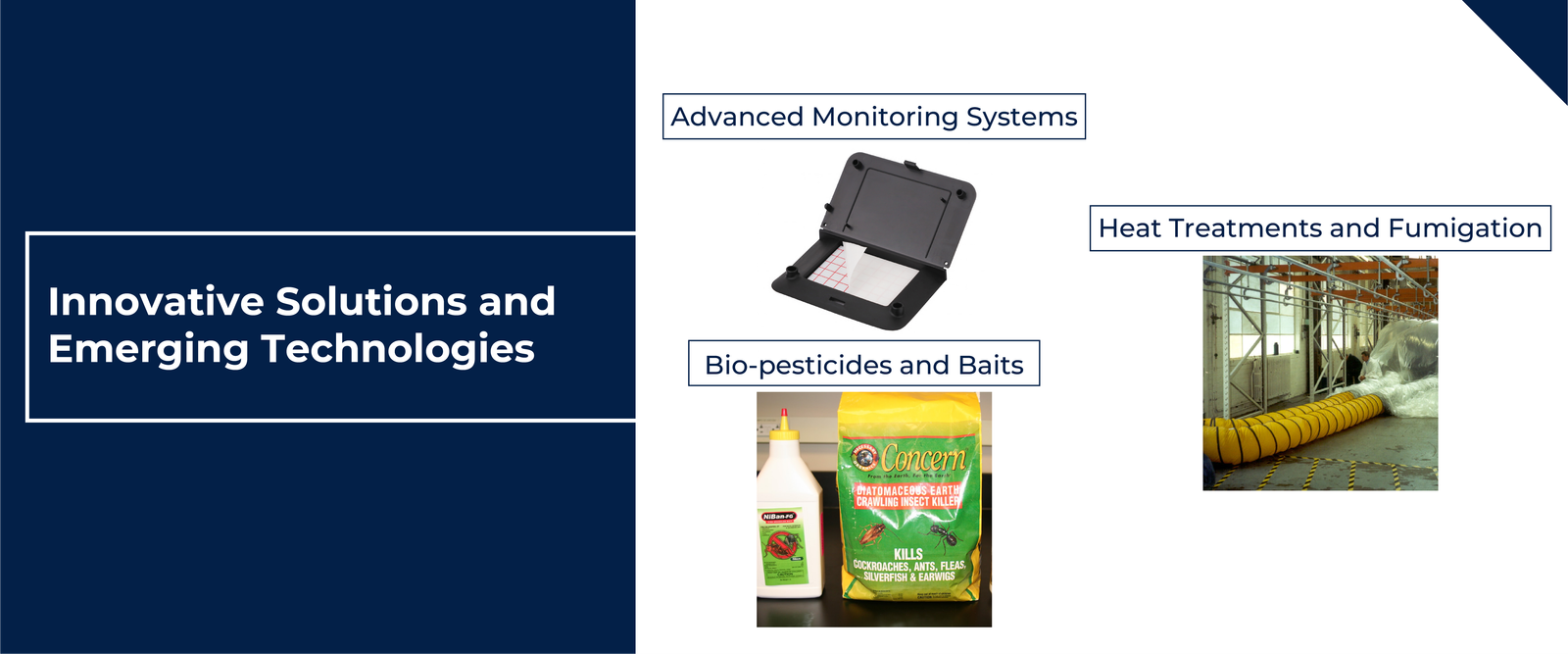Silent destroyers – that’s what termites are. These tiny insects can wreak havoc on your property, munching away at the wooden foundation and support structures.
Termite Infestations and Damage:
Termites feed on cellulose, the main component of wood. They can go unnoticed for years, silently causing extensive damage to your home’s framework, beams, floors, and even furniture. Left unchecked, a termite infestation can lead to structural instability and even collapse.
Importance of Termite Control:
Protecting your property from termite damage is crucial. Early detection and treatment can prevent costly repairs and potential safety hazards. Professional termite control services can effectively eliminate existing infestations and put preventative measures in place.
Licensing Requirement:
However, to ensure safe and effective termite control, it’s important to hire a licensed professional. In New York City, termite pest control services require a specific license from the state.
Termite Pest Control License
A termite pest control license signifies that the applicator or technician possesses the necessary knowledge and skills to handle termite control treatments safely and effectively.
License Purpose:
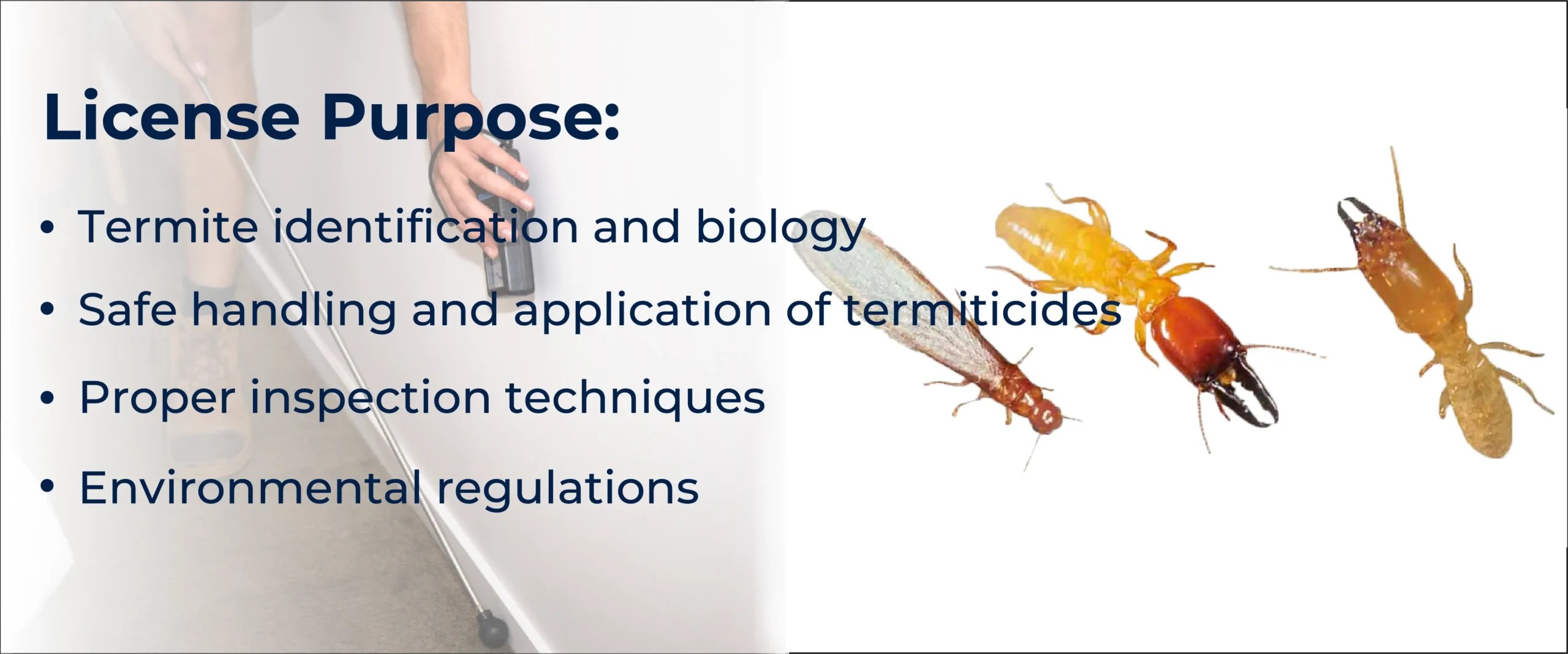
This licensing system ensures that professionals applying pesticides for termite control understand:
- Termite identification and biology
- Safe handling and application of termiticides
- Proper inspection techniques
- Environmental regulations
License to Treat Termites (and Not Other Pests)
While a general pest control license might sound like it covers all your pest problems, there’s a common misconception: a general license doesn’t qualify a professional for termite control. Here’s why having the right license is crucial:
Specificity Matters:
A general pest control license typically focuses on eliminating common household pests like ants, roaches, and rodents. While these services are important, the knowledge and skills needed for termite control go beyond basic pest management.
Termites: A Different Breed:
Termites require a specialized approach due to their unique biology and behavior. They live underground or within wood structures, making them difficult to detect and requiring specific treatment methods.
License to Treat Termites & Pest Control: Why It Matters
Here’s why having a separate termite pest control license is essential for effective and safe termite treatment:
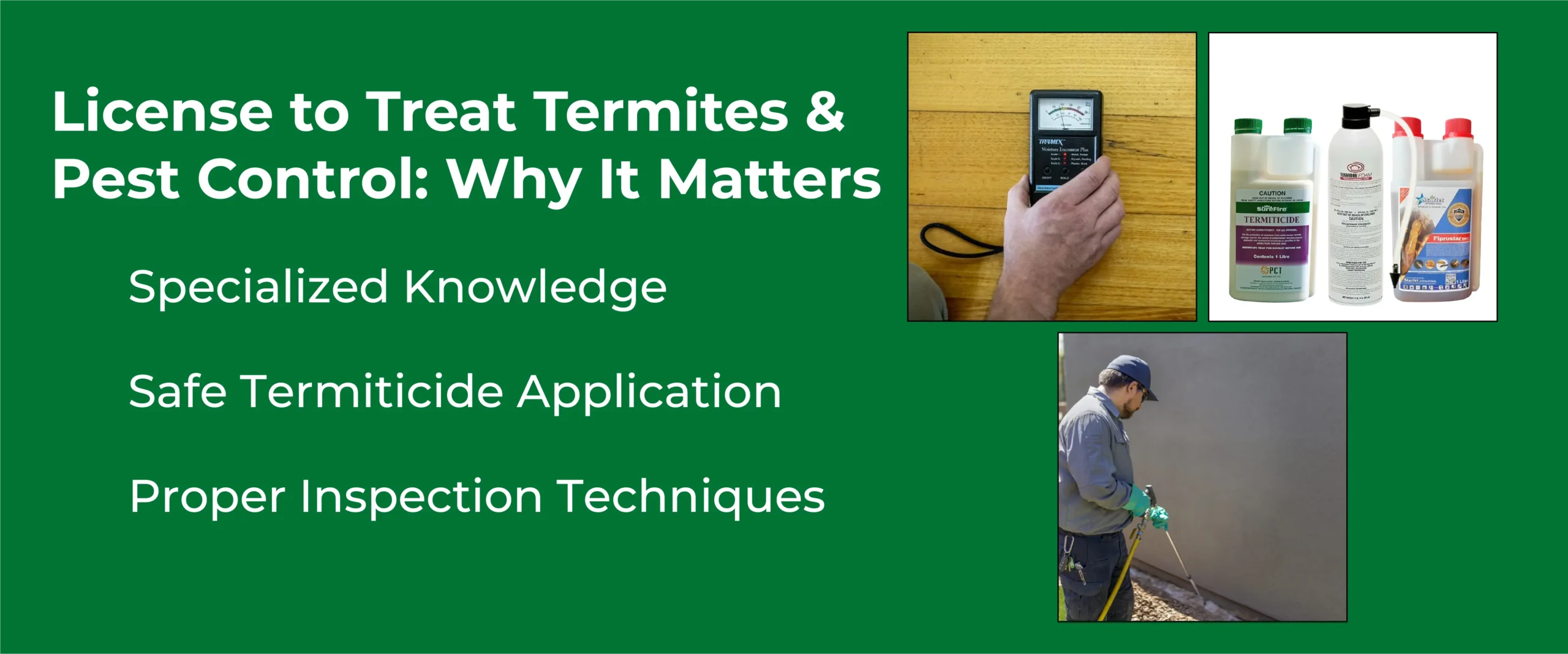
Specialized Knowledge:
Professionals with a termite license have undergone specific training in termite identification, biology, and behavior. They understand the different termite species and their preferred habitats.
Safe Termiticide Application:
Termite treatments often involve potent chemicals known as termiticides. A termite license ensures that the applicator possesses the knowledge of safe handling, application techniques, and potential environmental impacts of these chemicals.
Proper Inspection Techniques:
Detecting and assessing a termite infestation requires specialized inspection methods beyond those used for general pests. Professionals with a termite license are trained in these techniques, such as using moisture meters and sounding tools to identify termite activity.
Termite Control Technician Job Description
The silent destroyers of your home – termites – require a skilled specialist to combat them. Enter the termite control technician, a crucial line of defense for property owners. Here’s a glimpse into their responsibilities:
Inspection and Detection:
A termite technician’s day often starts with a thorough inspection of the property. They’ll look for signs of termite activity, such as mud tubes, wood damage, and discarded wings. This skilled eye, honed by training, is essential for identifying an infestation.
Treatment Planning:
Based on the inspection findings, the technician develops a customized treatment plan. This may involve soil treatments, bait stations, or other methods specific to the type and severity of the infestation.
Treatment Implementation:
Once the plan is approved, the technician expertly applies the chosen termiticides or sets up bait stations. Safety protocols and environmental regulations are paramount during this stage.
Customer Communication:
Effective communication is key. The technician explains the treatment process, answers questions, and educates homeowners on termite prevention strategies.
Not all tasks require a termite license:
General duties like cleaning up after treatment or scheduling appointments might not fall under the licensing umbrella. However, the core aspects of termite control, from identifying the problem to implementing the solution, demand the specialized knowledge and skills ensured by a termite pest control license (Category 7C).
Termite Control License: Your Weapon Against Termites
Now that you understand the importance of a termite license, let’s explore how to obtain one in NYC. Here’s a breakdown of the process:
Eligibility:
To be eligible for a termite control license (Category 7C) in New York City, you’ll need to meet the basic requirements set by the New York State Department of Environmental Conservation (NYSDEC). This typically involves a minimum level of education and experience in pest control.
Application Procedures:
The NYSDEC provides the application forms and information on required fees. The process usually involves submitting the application, relevant documentation, and passing a written exam.
Examinations:
The NYSDEC administers a comprehensive written exam specifically designed for Category 7C – Termite. This exam covers topics like termite identification, biology, safe handling of termiticides, and proper application techniques.
By successfully navigating these steps, you’ll be equipped with the official license to tackle termite infestations in NYC.
Conclusion
The termite pest control license signifies expertise in dealing with these destructive insects. Hiring a licensed professional ensures:
- Effective Treatment: Licensed technicians possess the knowledge and skills to implement the proper treatment plan for your specific situation.
- Safety and Regulation Compliance: They understand safe handling procedures for termiticides and adhere to environmental regulations.
- Peace of Mind: Knowing your property is in the hands of a qualified professional brings peace of mind and protects your investment.
A Termite License: Opens Doors to a Rewarding Career
Obtaining a termite control license opens doors to a rewarding career path in pest control. You can work for established pest control companies, start your own business, or specialize in termite inspections and consultations.
Ready to Become a Termite Terminator?
If you’re interested in protecting homes from these silent destroyers, consider enrolling in a NYC Pest Management School program specifically designed for Termite Control (Category 7C). With the right training and dedication, you can become a licensed termite control technician, safeguarding properties and building a successful career in this essential field.
